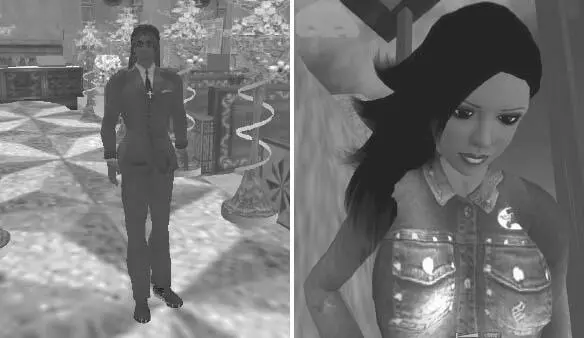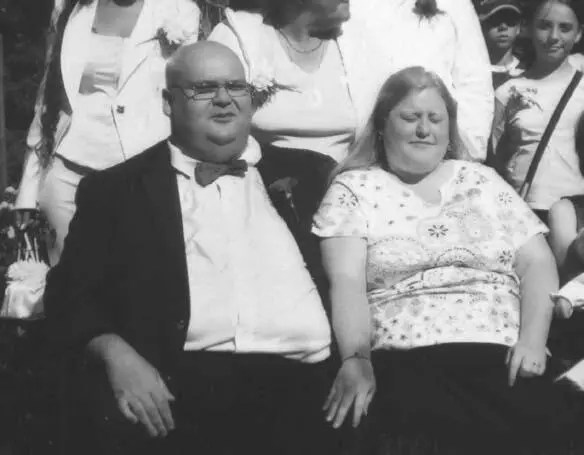Bruce Hood - The Self Illusion
Здесь есть возможность читать онлайн «Bruce Hood - The Self Illusion» весь текст электронной книги совершенно бесплатно (целиком полную версию без сокращений). В некоторых случаях можно слушать аудио, скачать через торрент в формате fb2 и присутствует краткое содержание. ISBN: , Издательство: Constable & Robinson, Жанр: Старинная литература, на английском языке. Описание произведения, (предисловие) а так же отзывы посетителей доступны на портале библиотеки ЛибКат.
- Название:The Self Illusion
- Автор:
- Издательство:Constable & Robinson
- Жанр:
- Год:неизвестен
- ISBN:9781780331379
- Рейтинг книги:5 / 5. Голосов: 1
-
Избранное:Добавить в избранное
- Отзывы:
-
Ваша оценка:
- 100
- 1
- 2
- 3
- 4
- 5
The Self Illusion: краткое содержание, описание и аннотация
Предлагаем к чтению аннотацию, описание, краткое содержание или предисловие (зависит от того, что написал сам автор книги «The Self Illusion»). Если вы не нашли необходимую информацию о книге — напишите в комментариях, мы постараемся отыскать её.
The Self Illusion — читать онлайн бесплатно полную книгу (весь текст) целиком
Ниже представлен текст книги, разбитый по страницам. Система сохранения места последней прочитанной страницы, позволяет с удобством читать онлайн бесплатно книгу «The Self Illusion», без необходимости каждый раз заново искать на чём Вы остановились. Поставьте закладку, и сможете в любой момент перейти на страницу, на которой закончили чтение.
Интервал:
Закладка:
What’s more, the best way to strengthen behaviour is to only reward it occasionally – this is called intermittent reinforcement. This is because our brains are always seeking out patterns in the environment. However, information and feedback from the environment is often fragmented and incomplete but our brains allow for such inconsistency. When we do something that seems to cause some form of positive reward, we then repeat the action in an attempt to recreate the pleasure. If this reward is only intermittent we will persist for much longer repeating our attempts. This is the reinforcement principle behind gambling. We gamble more and for longer just waiting for that occasional reward. 37Slot machines only need to pay out every so often on an intermittent reinforcement schedule for players to persist in pumping more coins into them. It’s that dopamine hit of anticipation that perpetuates our behaviour.
In the same way, conditioning explains our online behaviour. We are compelled to check our emails or look for approval from our online community just in case something really important or juicy comes along. Every time I checked my email or hit activity on my blog, I was like a rat in one of Skinner’s conditioning experiments. At first, the numbers were only a handful but every week they increased. Within a month, I was checking activity every day – thrilled when there was a peak or a kind comment, depressed by the dips and disparaging remarks. Most days there was nothing but every so often, I would be rewarded. The dopamine spurt triggered by associated anticipation had become my drug of choice and I had become a numbers junkie looking for more and more hits.
So the Internet can become addictive and it can also be dangerous, especially in the case of immersive gaming where individuals can play for hours in fantasy worlds. In 2010, South Korea had a greater proportion of its population online than any other nation (81 per cent of forty-six million). Most Koreans spend their online time in internet cafés that provide fast but cheap connections. This can have devastating consequences. Many of them develop serious medical conditions related to hours of online activity at the cost of offline inactivity. Their joints swell up. They develop muscular pain. Sometimes it’s others that get hurt. In the same year, a South Korean couple who met online married in real life, but unfortunately had a sickly premature baby. 38But then they decided to continue their lives online in the café across the road in a game where they raised a virtual baby. They only returned to the house once a day to feed their own real baby. This lack of care meant that their own child eventually died of severe dehydration and malnutrition. Undoubtedly, this is an extreme case and many children raised in poverty are neglected but it highlights the compulsion of the Web. I recently hosted a highly educated academic family visiting from the United States and after the initial social conversation and exchange of anecdotes over dinner; we soon dispersed to check our email, Facebook and other online lives. It was not only the adults in the group, but the children as well. At one point, I looked up from my laptop and saw everyone else in the room silently immersed in their own Web. Whereas we once used to compartmentalize our lives into the working day and time with the family, the Web has destroyed those boundaries forever. Most of us are connected and we like it that way. Just like drug addiction, many of us get withdrawal symptoms of anxiety and irritability when we are denied our Web access.
We have become shaped and controlled by our technology in a way predicted by Marshall McLuhan when he introduced phrases such as the ‘global village’ and ‘the medium is the message’. 39Even in the 1960s, before the invention of the Web, McLuhan predicted that society would change to become dependent and shaped by our communications technology. He understood that we extend our self out to others and in doing so, become influenced by their reciprocal extensions. To this extent we are intricately inter-related to each other through the mediums by which we communicate. Likewise, Sherry Turkle, the MIT sociologist, has also described this shift from face-to-face interaction to terminal-to-terminal interaction in her recent book, Alone Together . 40As we spend more time online, we are necessarily less offline, which means that we will cease to live the same lives shaped by our immediate others. Rather, who we are will increasingly become shaped by the mediums in which we exist. Some people find this scary. For many it is liberating.
We All Want a Second Life
What do you do if you are unemployed, overweight and living off benefits with no prospect of escaping the poverty trap? Since 2003, there has been another world you can live in – a world where you can get a second chance. This is Second Life, a virtual online world where you reinvent your self and live a life among other avatars who never grow old, have perfect bodies, never get ill, have fabulous homes and lead interesting lives.
David Pollard and Amy Taylor are two individuals who separately wanted to escape the dreariness of their mundane lives. 41Both of them lived in Newquay, a seaside resort in southwest England that has become a Mecca for drunken teenagers who come in their hordes to party away the summer. The town is far from idyllic and I would imagine living there, without a job and prospects, must be depressing. To escape the drudgery, David and Amy (who initially met in an online chatroom) joined Second Life where they became ‘Dave Barmy’ and ‘Laura Skye’ (see Figure 11). Dave Barmy was in his mid-twenties, six foot four, slim, with long dark hair, and was a nightclub owner who lived in a sprawling villa. He had a penchant for smart suits and bling. In reality, David Pollard was forty, overweight at 160 kg, balding and living off incapacity benefits in a bedsit. He wore T-shirts and tracksuit bottoms.

Figure 11: Dave Barmy and Laura Skye
Laura Skye was an equally exotic character. She was also in her mid-twenties, a slim six foot with long, dark hair, living in a large house. She liked the country and western look of tight denim blouses and boots. In reality, Amy Pollard was an overweight, five-foot-four redhead who was also living off benefits. The contrast between reality and fiction could hardly have been greater (see Figure 12).
When the couple met online as Dave Barmy and Laura Skye, they fell in love and married in Second Life. But they also met up in real life with Amy moving in with David in Newquay. After two years, they married for real – just like the Korean couple. However, as in real life, that’s when things started to go wrong. Laura (Amy) suspected Dave was playing around in Second Life so she hired a virtual detective to check up on her virtual husband. At one point, she discovered Dave Barmy having sex with a call girl in the game. In real life, David apologized and begged for forgiveness. The final straw came when Amy caught her real husband in front of the computer in their small flat watching his avatar cuddling affectionately on a couch with another Second Life character, Modesty McDonnell – the creation of Linda Brinkley, a fifty-five-year-old twice-divorcee from Arkansas, USA. Amy was devastated. She filed for divorce on the grounds of unreasonable behaviour even though Dave had not actually had sex or an affair in real life. Soon after, Dave proposed to Modesty online and in real life even though the couple had never met.

Интервал:
Закладка:
Похожие книги на «The Self Illusion»
Представляем Вашему вниманию похожие книги на «The Self Illusion» списком для выбора. Мы отобрали схожую по названию и смыслу литературу в надежде предоставить читателям больше вариантов отыскать новые, интересные, ещё непрочитанные произведения.
Обсуждение, отзывы о книге «The Self Illusion» и просто собственные мнения читателей. Оставьте ваши комментарии, напишите, что Вы думаете о произведении, его смысле или главных героях. Укажите что конкретно понравилось, а что нет, и почему Вы так считаете.












